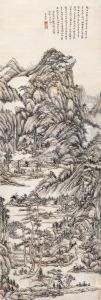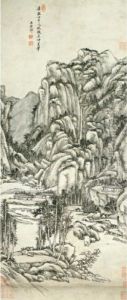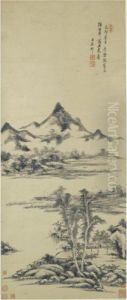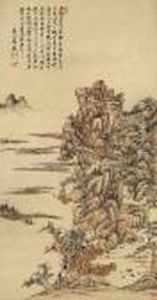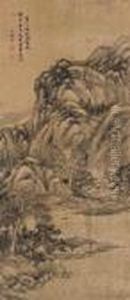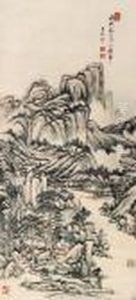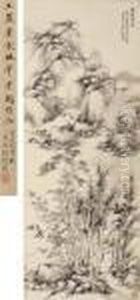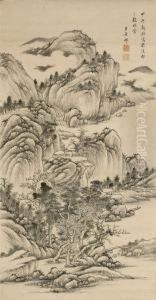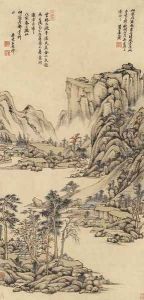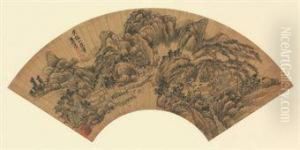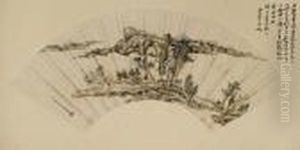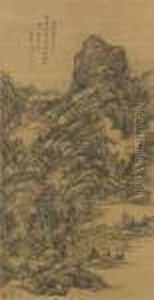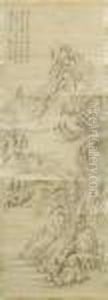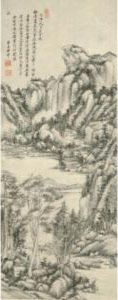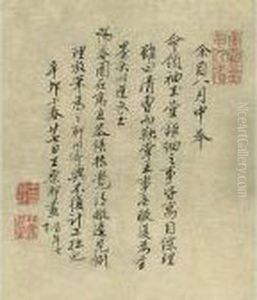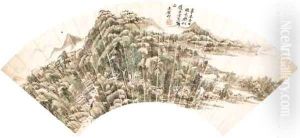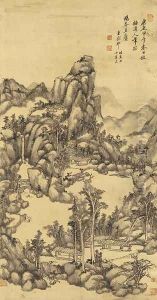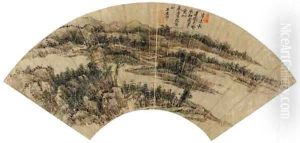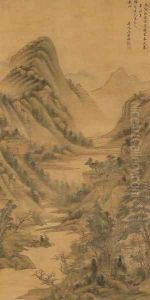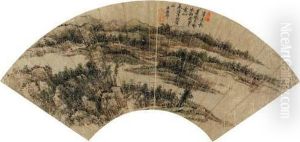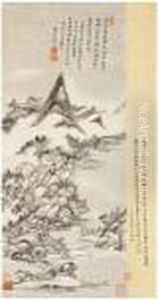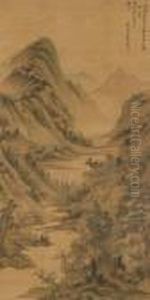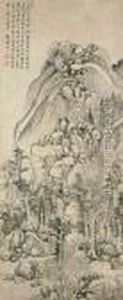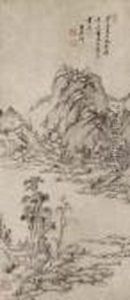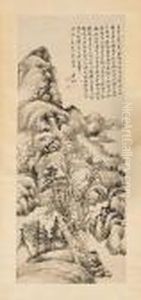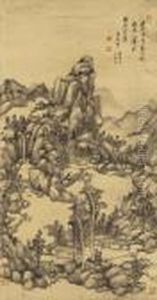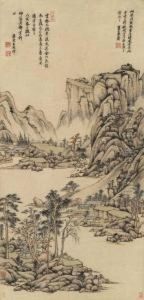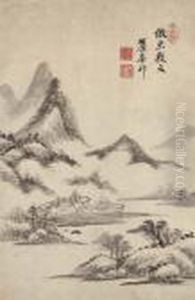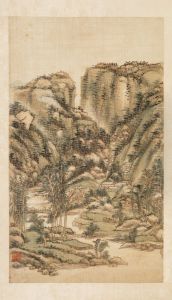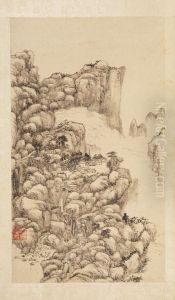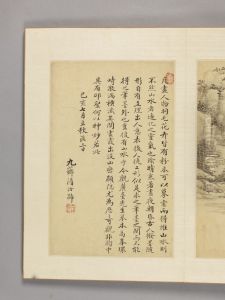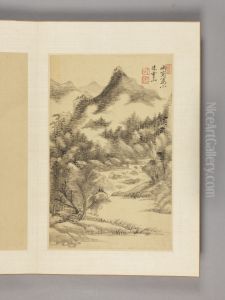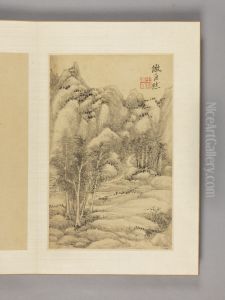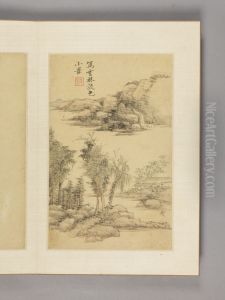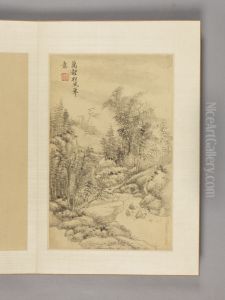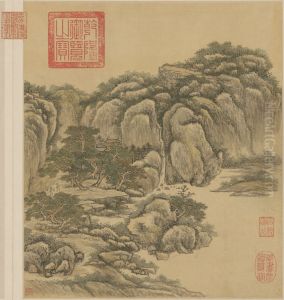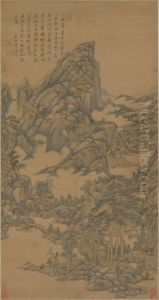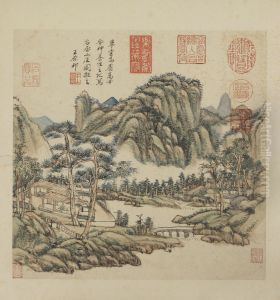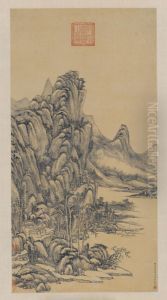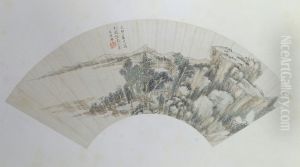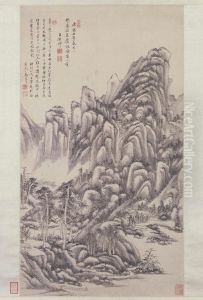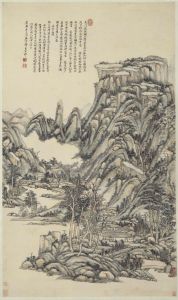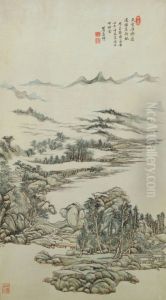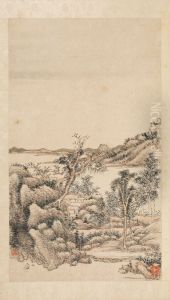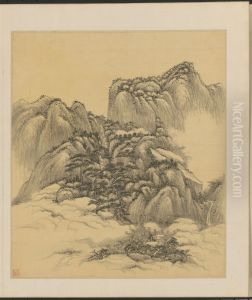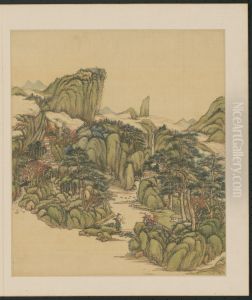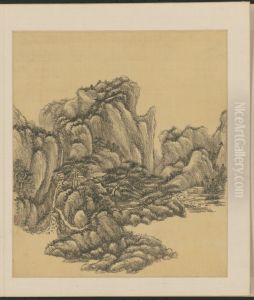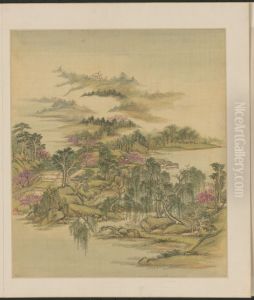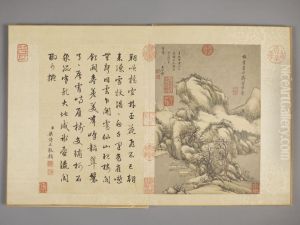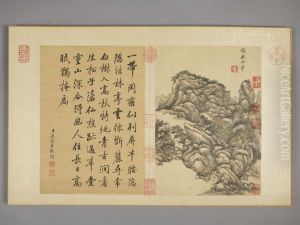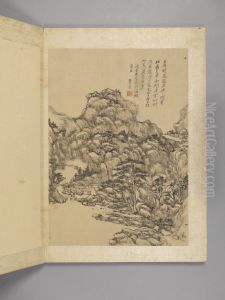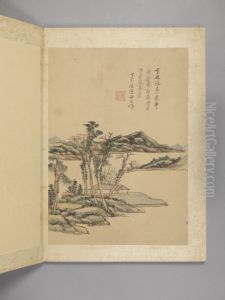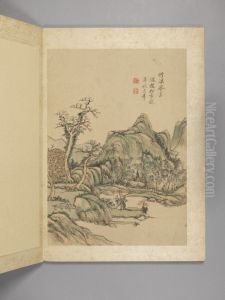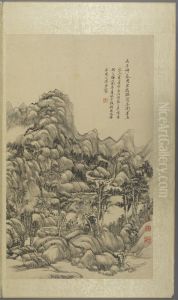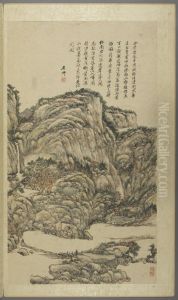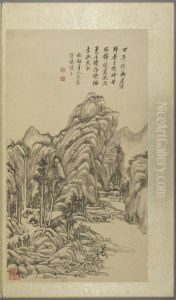Wang Yuanqi Paintings
Wang Yuanqi was a prominent Chinese painter during the Qing Dynasty, particularly known for his landscape paintings. Born into a family with a rich scholarly and artistic tradition, Wang was the grandson of the famous Ming loyalist and painter Wang Shimin (1592–1680), who was a pupil of Dong Qichang (1555–1636). This lineage placed Wang Yuanqi squarely within the artistic tradition known as the 'Four Wangs', which included Wang Shimin, Wang Jian (1598–1677), Wang Hui (1632–1717), and Wang Yuanqi himself, all known for their contributions to the literati painting style, or wenrenhua.
Wang Yuanqi started studying the classics of Chinese literature and the art of painting at a young age under the guidance of his grandfather. He became known for his talent in both poetry and painting. His style was characterized by the use of strong brushwork and an emphasis on the rhythmic flow of the landscape, which he believed was the 'pulse' of the natural world. He was also an advocate of the 'Southern School' of Chinese painting, which emphasized spontaneity and expressive brushwork over the more detailed and meticulous 'Northern School'.
During his lifetime, Wang Yuanqi served as an official in the Qing court, and his position allowed him access to the imperial collection. This exposure to a vast array of artworks influenced his development as an artist. He became a leading figure in the Orthodox School of Chinese painting, which sought to revive the scholarly and artistic ideals of the past. Wang Yuanqi's paintings were not only appreciated in his time but have also been revered by later generations for their historical and cultural significance.
His works often depicted towering mountains and sprawling landscapes, imbued with a sense of vitality and movement. Wang Yuanqi's artistic philosophy revolved around the concept of 'li', which roughly translates to the underlying principle or order of nature. He believed that by understanding 'li', an artist could capture the true essence of the landscape. Wang Yuanqi's contributions to Chinese art were significant, and his works continue to be studied and admired for their vitality, depth, and embodiment of traditional Chinese painting principles.
